Bioactive Compounds And Functional Foods: Key Drivers In
Health Promotion, Disease Prevention And Management
34th International Conference of FFC - 22nd International Symposium of ASFFBC
Conference and EXPO at Institute of Food Science Research on September 24-26, 2025, in Madrid, Spain (In-Person and Virtual/Live Online Event)
We expecting more than 5000 registered attendees (in-person and virtual) at this conference and we are welcoming representatives from over 125 countries.
Sessions and Topics:
Session 1: Functional Foods: Definitions, Classification, And Regulatory Frameworks
a. Exploring the concepts of Healthy, Functional, and Medical Foods, including their distinctions and overlap.
b. Review of international regulatory frameworks, policies, and labeling standards shaping functional food development.
c. Examination of the Functional Food Center's innovative methodology for creating functional food products.
d. Insights into effective marketing strategies for the development and successful commercialization of functional foods.

Session 2: Food Bioactive Compounds: Sources, Digestibility, Bioavailability, And Health Benefits
a. Exploration of key food sources abundant in bioactive compounds, emphasizing their nutritional potential and diversity.
b. Examination of gastrointestinal digestion's impact on the stability and functional efficacy of bioactive compounds, shaping their health effects.
c. Innovations in enhancing bioavailability and delivery systems to maximize the effectiveness of bioactive compounds.
d. Establishing evidence-based guidelines for determining safe and effective dosages of bioactive compounds in functional foods and nutraceuticals.
e. In-depth analysis of the scientifically supported health benefits of bioactive compounds, highlighting their role in promoting well-being and preventing diseases.
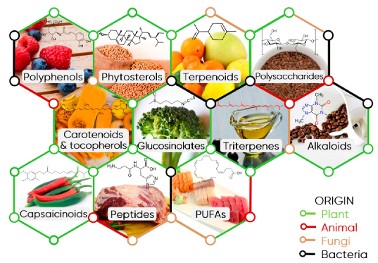
Session 3: Combating Infectious Diseases with Bioactive Compounds and Functional Foods
a. Food bioactive compounds with potential against emerging infectious diseases.
b. The role of bioactive compounds and functional foods against gastrointestinal infections.
c. Functional foods against viral infections.
d. Mechanisms of food bioactive compounds to combat infectious diseases: antimicrobial, antioxidant, immunomodulatory effects.
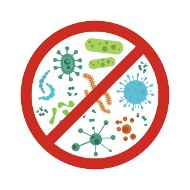
Session 4: The Potential of Functional Foods And Bioactive Compounds In Promoting and Managing Chronic Diseases
a. Bioactive Compounds and Cardiovascular Health: Examining how food-based bioactive compounds can reduce risks associated with cardiovascular diseases.
b. Neurological Protection through Bioactive Compounds: Investigating the role of bioactive compounds in preventing or managing age-related neurological disorders.
c. Anticancer Properties of Food Bioactives: Highlighting the potential of bioactive compounds in functional foods to prevent or combat cancer.
d. Addressing Chronic Diseases with Functional Foods: Exploring the benefits of functional foods and bioactive compounds in mitigating various chronic diseases.
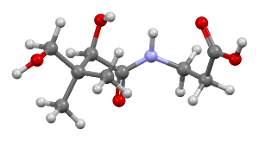
Session 5: Functional Foods And Their Role In Promoting Healthy Aging:
a. Examination of the biological processes of aging and their connection to an increased susceptibility to chronic diseases like heart disease, diabetes, dementia, and arthritis.
b. Discussion on age-related changes in metabolism, immunity, and cellular functions that contribute to the rise in disease risks.
c. The potential of bioactive compounds in functional foods (like antioxidants, polyphenols, omega-3 fatty acids) to mitigate the effects of aging.
d. Focus on functional foods that promote brain health, cardiovascular function, and immune support, which are critical in aging populations.

Session 6: Bioactive Compounds And The Management Of Metabolic Diseases
Metabolic diseases involve disruptions in normal metabolism, particularly the conversion of food to energy. This session will explore:
a. Regulation of Blood Sugar and Lipids: The role of bioactive compounds in maintaining glucose levels and improving lipid profiles.
b. Anti-Inflammatory and Antioxidant Effects: How bioactive compounds mitigate inflammation and oxidative stress in metabolic disorders.
c. Gut Microbiota and Metabolism: The impact of bioactive compounds on gut health and their role in metabolic regulation.
d. Blood Pressure and Weight Management: Mechanisms by which bioactive compounds aid in controlling hypertension and supporting weight management.
e. Prevention of Insulin Resistance: Strategies using bioactives to combat insulin resistance and its metabolic consequences.
f. Mechanisms Addressing Metabolic Syndrome: Exploring how bioactive compounds target the underlying causes of metabolic syndrome.
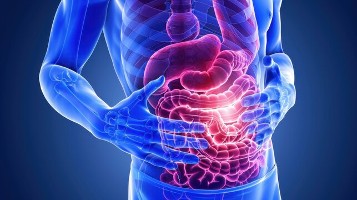
Session 7: Applications Of Artificial Intelligence In Functional Food Science:
Artificial Intelligence (AI) is revolutionizing functional food science and the healthy food industry by offering innovative solutions for research, production, safety, and recipe development.
a. Functional Food Science: AI enhances nutritional optimization by analyzing data to identify ingredient combinations that maximize health benefits. It predicts the effects of bioactive compounds and enables personalized nutrition based on genetic and health data.
b. Food Industry: AI improves quality control, ensures supply chain efficiency, and drives product development by analyzing market trends and consumer preferences.
c. Food Safety: AI systems detect contaminants, predict spoilage, and monitor food quality in real time to maintain safety standards.
d. Recipe Development: AI creates health-focused recipes by analyzing flavor profiles, dietary needs, and culinary trends, combining taste with nutrition.

Session 8: Impact Of Food Bioactive Compounds On Gut Microbiota
a. The gut microbiota’s influence on overall health and disease prevention.
b. Role of gut microbiota modulation in managing chronic diseases.
c. Probiotics, prebiotics, synbiotics, and postbiotics: definitions and benefits.
d. Effects of food bioactive compounds on gut microbial diversity and functionality.
e. The microbiome–gut–brain axis: bioactive compounds in mental health improvement.
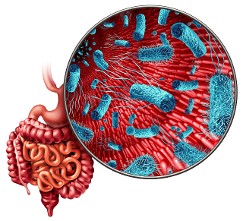
Session 9: New Trends In The Functional Foods Market
a. Present and future of the Functional Foods market.
b. Economic aspects of Functional Foods.
c. Sustainability and clean labeling of Functional Foods.
d. Functional Foods for personalized nutrition and precision health.
e. 3D printing of Functional Foods. Bioactive compounds, vitamins, or probiotics can be incorporated precisely into 3D-printed food for functional benefits.
f. New Healthy and Functional Foods: research, development, and consumer acceptance.

Session 10: Research And Development Of New Functional Food Products For Chronic And Infectious Diseases And For General Health
a. Incentives for functional and healthy food research and development.
b. Consumer acceptance of healthy and functional food products.
c. Functional food composition and dietary intake databases.
d. Food vehicles for delivery bioactive compounds.
e. Research, development and marketing of new healthy and functional food products.
f. Evaluation of Functional Food Products by using Basic Principles of Functional Food Science.

*Please note: Abstract Submission Deadline is: March 31st, 2025, 5 pm (PST)
**We are planning workshop on this section whcih will offer strategies for improving efficiency of Bioactive Compounds and Functional Foods
|